 Chemical analysis and synthesis go no farther than to the separation of particles one from another, and to their reunion. No new creation or destruction of matter is within the reach of chemical agency. We might as well attempt to introduce a new planet... Chemical analysis and synthesis go no farther than to the separation of particles one from another, and to their reunion. No new creation or destruction of matter is within the reach of chemical agency. We might as well attempt to introduce a new planet...  Bulletin of the Philosophical Society of Washington - Page xxxivby Philosophical Society of Washington (Washington, D.C.) - 1881Full view Bulletin of the Philosophical Society of Washington - Page xxxivby Philosophical Society of Washington (Washington, D.C.) - 1881Full view - About this book
 | 1812 - 564 pages
...a state of cohesion or combination, and joining those that were previously at a distance; and that we might as well attempt to introduce a new planet into the solar system, or annihilate one already in existence, as to create or destroy a particle of hydrogen." We wish that... | |
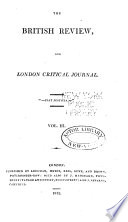 | 1812 - 528 pages
...at a distance; and that we might as well attempt to mtroduce a new planet into the solar system, or annihilate one already in existence, as to create or destroy a particle of hydrogen." We wish that all Mr. Dalton's postulata had been as undeniable. His ideas would then have possessed... | |
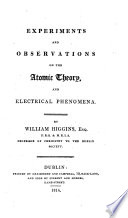 | William Higgins - 1814 - 194 pages
...separation of particles one from another, and to their re-union. No new creation or destruction of matter is within the reach of chemical agency. We might as well attempt to introduce a new planet into 165 the solar system, or to annihilate one already in existence, as to create or destroy a particle... | |
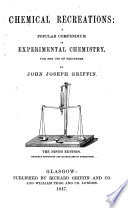 | John Joseph Griffin - 1847 - 584 pages
...separation of particles one from another, and to their re-union. No new creation or destruction of matter is within the reach of chemical agency. We might as...existence, as to create or destroy a particle of hydrogen. All the changes we can produce, consist in separating particles that are in a state of cohesion or... | |
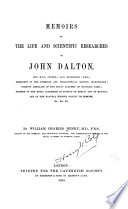 | William Charles Henry - 1854 - 346 pages
...separation of particles one from another, and to their reunion. No new creation or destruction of matter is within the reach of chemical agency. We might as...existence, as to create or destroy a particle of hydrogen. All the changes we can produce, consist in separating particles that are in a state of cohesion or... | |
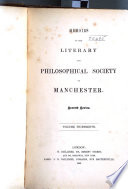 | Manchester Literary and Philosophical Society - 1856 - 340 pages
...separation of particles one from another, and to their reunion. No new creation or destruction of matter is within the reach of chemical agency. We might as...existence, as to create or destroy a particle of hydrogen. All the changes we can produce consist in separating particles that are in a state of cohesion or combination,... | |
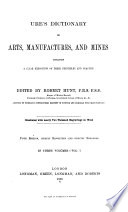 | Andrew Ure - 1860 - 972 pages
...particles one from another, and to their reunion. No new creation or destruction of matter is w'uhin the reach of chemical agency. We might as well attempt...existence, as to create or destroy a particle of hydrogen. All the changes we can produce consist in separating particles that are in a state of cohesion or combination,... | |
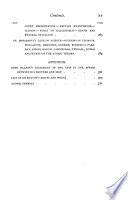 | Henry Lonsdale - 1867 - 336 pages
...separation of particles one from another, and to their reunion. No new creation or destruction of matter is within the reach of chemical agency. We might as...existence, as to create or destroy a particle of hydrogen. All the changes we can produce consist in separating particles that are in a state of cohesion or combination,... | |
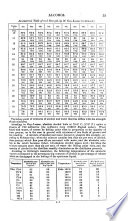 | Andrew Ure - 1867 - 1006 pages
...separation of particles one from another, and to their reunion. No new creation or destruction of matter is within the reach of chemical agency. We might as...existence, as to create or destroy a particle of hydrogen. All the changes we can produce consist in separating particles that are in a state of cohesion or combination,... | |
 | Sir Norman Lockyer - 1870 - 694 pages
...finite ; just as in a given space of the universe, the number of stars and planets cannot be infinite. We might as well attempt to introduce a new planet...existence, as to create or destroy a particle of hydrogen." All substances, then, are composed of atoms ; and these attract each other, but at the same time keep... | |
| |